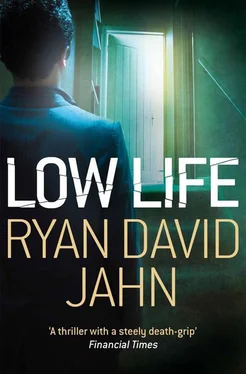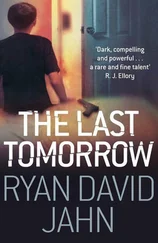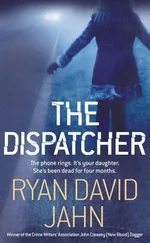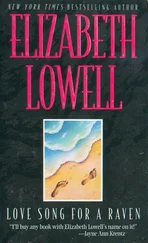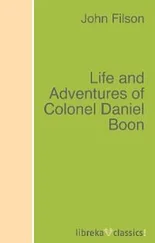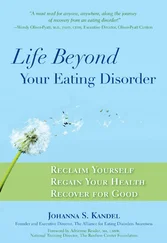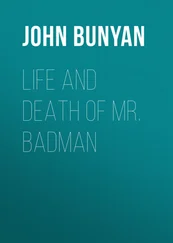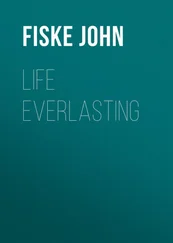He closed his eyes, gritted his teeth – his jaw going tight and cramping with the pressure of it – and sawed the blade down toward his chin. As he cut downward, his head seemed to roll out of consciousness, like a ball on a gentle slope – and then it dropped off the edge into total darkness.
He woke up on the bathroom floor. His mouth was full of blood both clotted and wet. He sat up, tongued his cheek, felt the sting of pain, and smiled. The movement of facial muscles sent more electric pain throbbing through his face and neck. Blood was still drizzling from the side of his cheek. He looked down at his wrinkled white T-shirt. It was covered in a thick, drying crust of burgundy. His glasses – also splattered with blood – were on the floor by the edge of the counter. He picked them up and put them back onto his face. Out-of-focus blood spots covered the lenses. He pushed himself up off the cold tile floor and onto his feet. He looked at himself in the mirror. The reflection he saw was something out of a horror film. It looked like he’d just spent the last hour rolling around a slaughterhouse floor.
He got a washcloth from one of the drawers and wetted it with hot water and gently wiped at his face and neck. Even though he started far from the wound, it hurt to wipe the blood away. His nerve endings felt raw and exposed. Still he continued, rinsing and wiping, being careful not to actually wipe at the slit in his face.
Once he’d gotten most of the blood away, he started dabbing at the wound itself with cotton balls soaked in peroxide, watching the peroxide turn white with bubbles. It stung, but not as badly as the alcohol would, and that was next.
After unwrapping a dozen band-aids, Simon taped them over the wound, thinking that he should have purchased gauze and medical tape instead. He hadn’t anticipated the extent of the damage that would be done – that now was done. The first layer of band-aids immediately went red and he stuck on a second layer, and then a third.
He found an expired bottle of Vicodin in the back of the medicine cabinet. He couldn’t remember ever having been prescribed Vicodin, and, in fact, he still wasn’t certain he ever had been. Maybe the last tenant had left the pills. He couldn’t know: the name had been peeled off the label. But there had been a few sweaters in the bedroom closet, and a few frying pans in the kitchen, and of course that dead ficus on the fire escape, so it was possible. He didn’t care. Even expired, its usefulness fading with age, it should dull the pain better than acetaminophen. He swallowed two of the pills, and then undressed, leaving his bloody clothes in a pile on the floor – he would take care of the clean-up tomorrow; right now, the entire right side of his head was throbbing like a bad tooth – and padded to the bedroom. He crawled under his blanket and looked up at the cracked ceiling.
He wondered if this had been a mistake.
Throughout most of the night he was awake and in pain. Once, as morning approached, he fell asleep with his eyes open and dreamed the bedroom was filling up with water. He dreamed – with his eyes open – that he was drowning. Then the dream – or the hallucination, whatever it was – was over, and he was simply lying in his bed again. He was covered in sweat and the night air was chilling him.
He closed his eyes, but sleep didn’t come again.
He stumbled into the living room early next morning. It was Sunday. He had cleaned up himself and the bathroom and was wearing a pair of brown checkered pants and a T-shirt and his corduroy jacket. He walked to the couch and sat down. He bent down and picked up the phone from the floor and set it in his lap. He dialed seven digits. After three rings the automated answering machine picked up and he dialed a three-digit extension, followed by the pound key. It being Sunday, he thought he would just leave a message, but someone picked up.
‘Hello.’
‘Hello – Mr Thames?’
‘Speaking.’
‘It’s Simon Johnson.’
‘Yes?’
‘Yes.’
‘Is something the matter, Simon?’
‘Oh. I’m just calling to let you know I won’t be in next week. I’ve had a death in the family. My mother. Well, my adoptive mother. I was adopted. I don’t know if you knew that. Anyways, I’ll be flying down to Austin for the funeral and to be with my family.’
‘I’m awfully sorry,’ Mr Thames said.
‘Okay.’
Simon pulled the phone away from his ear.
‘Simon?’
The tinny sound of the voice barely reached him, but it did, and he put the phone to his ear once more.
‘Yes, sir?’
‘I know this is a bad time for you, but is there a number where we can contact you if we have any questions about your accounts?’
‘You can call my apartment. I’ll check the messages daily.’
‘Okay, Simon.’
‘Okay.’
He put the telephone back into its cradle and set it back onto the floor. He didn’t have an answering machine.
Later that afternoon he drove downtown to the Los Angeles Central Library on Fifth and Grand. He parked on Fifth Street, across from the Edison building, stepped from his car, took one last drag from his cigarette, and dropped it into the metal tray which lined the top of the trash can out front. The tray was filled with nicotine-yellow water and cigarette butts and straw wrappers and wads of bubble-gum and bubblegum papers. The cigarette Simon dropped in sizzled briefly and then went silent. His cheek was covered in multiple layers of band-aids. Inside his mouth, though, a slow flow of blood still oozed from the wound when he made any kind of expression at all, and when he smoked it stung. But he wasn’t going to stop smoking. Had he any will he would have stopped long before now. He spit a wad of blood into the trash can and headed for the front door, past a homeless guy with no shoes whose toes looked black with decay.
He walked into the lobby, where a line was twisting toward the checkout desk, filled with people holding library-card applications and library cards and stacks of books to check in, or out, or both.
After examining a floor plan of the library by the escalators – he’d only ever gone upstairs to where they kept fiction and literature – he found what he was looking for two floors below ground, on lower level two, in the science and technology section. He walked past the information desk and made a left, and there he found the mathematics books.
He grabbed an armload of them, almost at random, and then found an unoccupied wooden cubicle and sat down. He opened one of the books. It told him that if velocity was constant, and one knew the velocity, then distance was that multiplied by time, and if one knew the time and the distance, then one could figure out the velocity, but if one knew only one of the three variables, one was, ultimately, fucked.
He wondered how often in life – rather than in hypothetical situations – one really had enough information to know anything with any amount of certainty.
There was an entire chapter in the same book dedicated to spheres. He had some experience with spheres. He lived on one, for instance – on an approximation of one, anyway. Here was a fact about the sphere that the book didn’t discuss: the sphere offered no escape: go in any direction for any distance, for an eternity, and you would never find the edge. You might cover the same ground a thousand times – but you would never find an edge.
Time passed.
It was four days after Simon’s first trip to the library that he took the band-aids off for the first time. They had started to smell bad. He had been tonguing the wound from the inside since the beginning and had felt it growing shallower as its lips began to seal themselves together. Now he wanted to see how it was progressing on the outside. He peeled the band-aids away with some pain – his beard was growing in and the adhesive was sticking to it – and in a few minutes the crescent scab was revealed. It was brownish-red and about an eighth of an inch wide at its widest point and ran four inches in length. There were strange little stretch marks in his skin at the edges of the wound, and it was red and raw there as well, but he didn’t think it was infected. Each end of the wound, where the cut had been shallowest, was already mostly healed. The scab had peeled away there, revealing pink scar. The middle, though, was still deep and raw. If he grimaced or frowned or smiled it bled still through cracks in the scab. But it was looking good. It was healing well. In another week or two the scab would flake away, revealing a scar very much like the one on the face of the – now stinking – corpse in his bathtub. Simon glanced at it. He was going to have to do something with it. He was tired of driving through the city, hunting for ice. He was going to have to get rid of it.
Читать дальше
